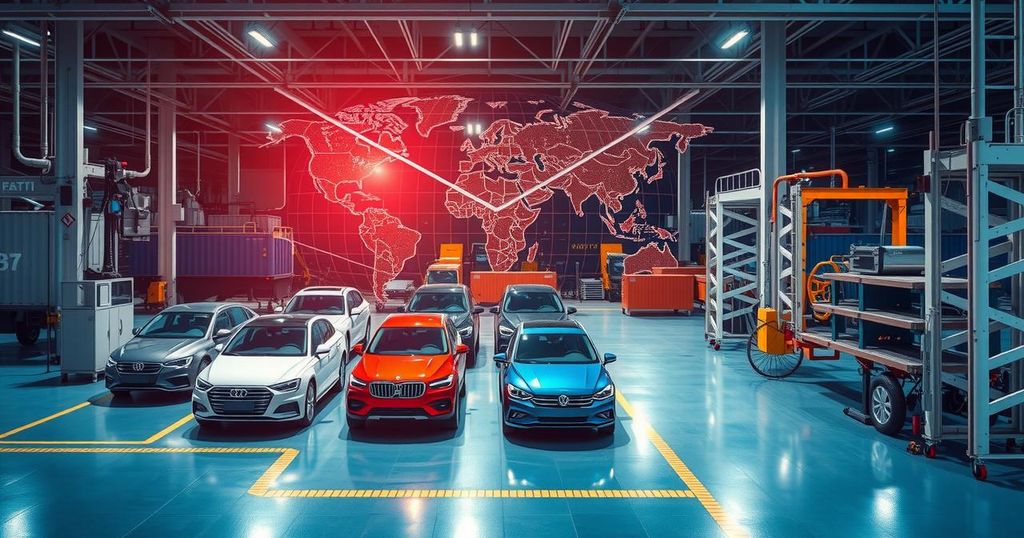Nigeria’s auto market is under pressure due to rising import costs and a looming 25% U.S. tariff on vehicle imports. Importers face financial strain, and vehicle prices have soared nearly 400% in recent years, affecting consumer purchasing power. Economist Hauwa Mustapha warns of potential long-term impacts on the market, advocating for strengthened local manufacturing efforts.
Nigeria’s automotive landscape has faced significant challenges, particularly for importers like David Tope. Previously importing up to five vehicles weekly from the U.S. and Canada, Tope has halted his operations due to escalating costs from currency depreciation and higher duties since 2023. “It’s not just the country that’s the thing, but our inflation rate is so high on duties and the naira devaluation — so it’s affecting importing from any country at all,” Tope explained. He emphasized the need for reconsideration of custom duties to help sustain his car dealership business.
The impending implementation of a 25% tariff on vehicle imports by the U.S. starting in April poses additional risks for Nigeria’s auto market, which largely relies on American used car exports. Tope remarked, “U.S. is the main market of importation that we do, so if inflation rate of 25% is being put on their cars, it’s going to affect Nigeria market.” He noted that higher U.S. production costs would lead to increased prices for Nigerian consumers.
As vehicle prices in Nigeria have already surged nearly 400% over the past two years, many citizens like Emmanuel Aaron and Akintunde Akinmolaye are increasingly discouraged from car purchases. Aaron admitted, “Honestly, the cost has gone so, so high that my interest in buying cars has to be suspended.” Akinmolaye lamented the potential quality trade-offs consumers may face as cost pressures mount.
Economist Hauwa Mustapha warns that the proposed U.S. tariff could fundamentally alter Nigeria’s automotive sector. If the U.S. emphasizes local vehicle production, there may be a reduction in available used cars for export, leading to further price inflation in Nigeria. Mustapha highlighted the precarious situation for thousands relying on vehicle imports for employment, stressing the need for Nigeria to boost local manufacturing capabilities.
Currently, Nigeria produces approximately 14,000 vehicles annually, which falls short of market demands. Mustapha advocates for reinforcing the steel industry and supportive infrastructure to increase local vehicle production, suggesting that these measures are vital for long-term sustainability. For now, importers like Tope are left in a state of uncertainty as they navigate these turbulent market conditions.
In summary, Nigeria’s auto market faces severe challenges due to rising import costs exacerbated by currency devaluation and potential U.S. tariffs. Importers like David Tope struggle to remain afloat amidst soaring vehicle prices, significantly impacting everyday consumers. The warnings from experts highlight the urgent need for Nigeria to strengthen its local manufacturing sector to ensure a viable automotive future.
Original Source: www.voanews.com




